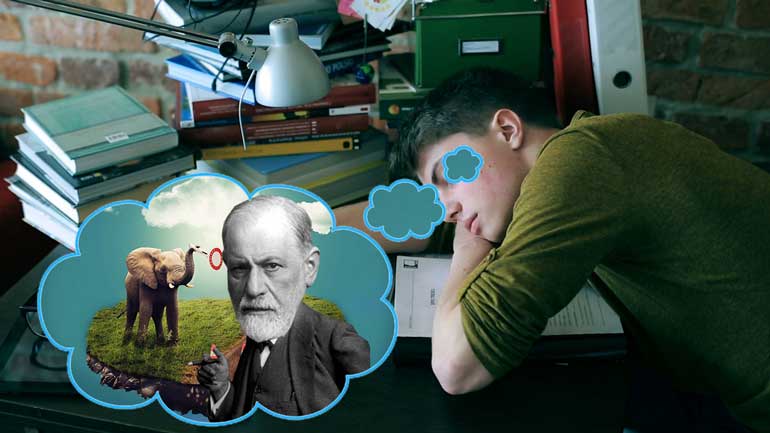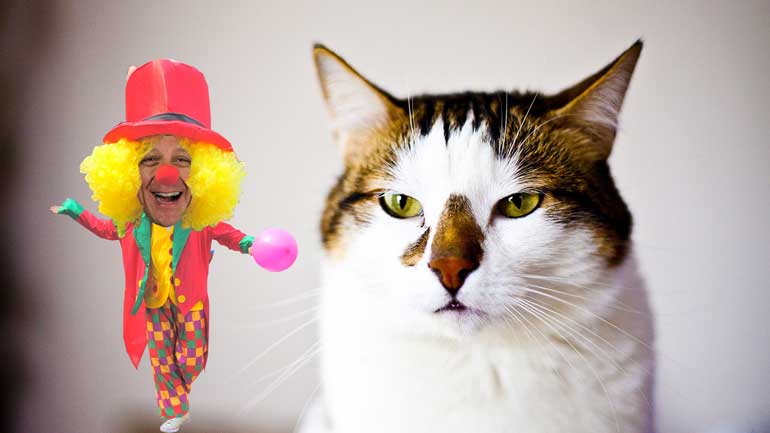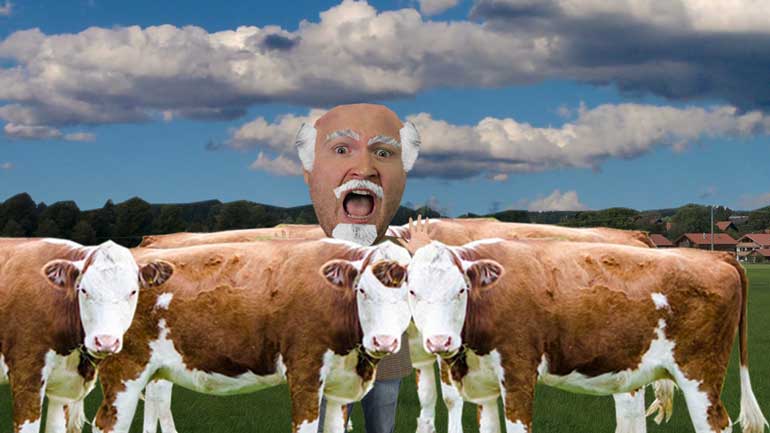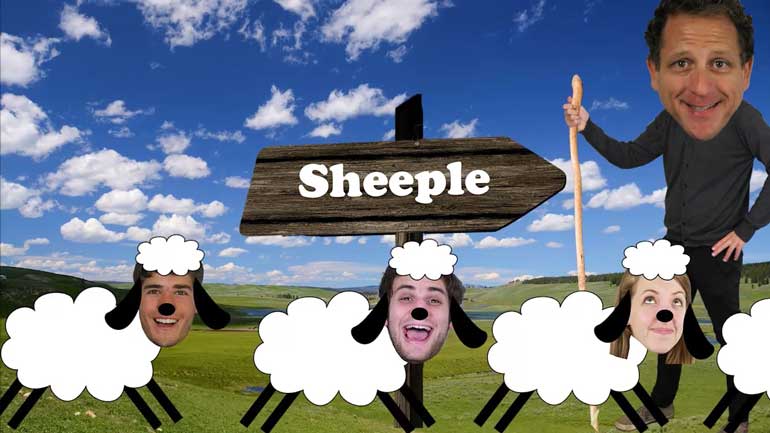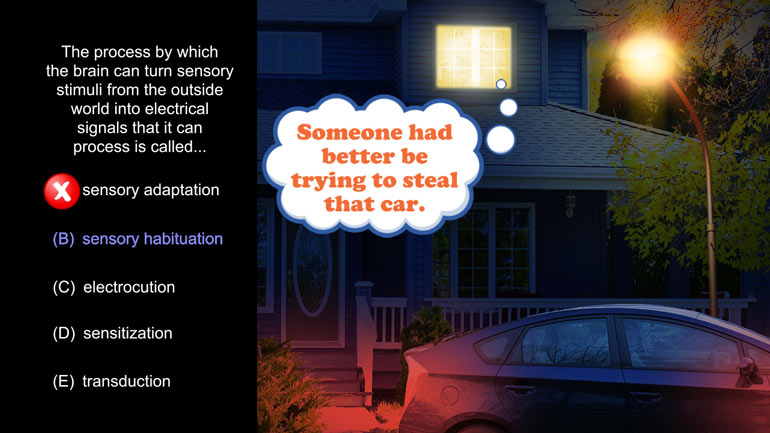ShmoopTube
Where Monty Python meets your 10th grade teacher.
Search Thousands of Shmoop Videos
Personality Videos 6 videos
AP Psychology 3.1 Personality. Which psychologist developed the idea that every culture has a collective unconscious that reflects its history and...
AP Psychology 3.3 Personality: Which is NOT one of the five personality traits posited by McCrae and Costa?
AP Psychology 1.1 Personality. According to Freud, these three parts of personality are constantly in conflict.
AP Psychology 1.1 Personality 193 Views
Share It!
Description:
AP Psychology 1.1 Personality. According to Freud, these three parts of personality are constantly in conflict.
Transcript
- 00:04
And here's your shmoop du jour brought to you by Freudian ships or
- 00:07
er slips, Freudian slips.. okay according to Freud these three parts of personality [Freud stood on a boat]
- 00:13
are constantly in conflict and here are our potential answers....
- 00:18
Well before we get into the question and potential answers let's [Brains in a boxing ring]
- 00:21
brush up on the Freudian theories on personality to figure out which of these
Full Transcript
- 00:25
three parts of the mind just can't manage to get along well Sigmund Freud
- 00:29
was not only famous for having awesome couches but also for exploring the human [Freud in a store filled with couches]
- 00:33
mind and making his own model of it now according to Freud the Id lives in the
- 00:38
unconscious part of the mind, kind of like a Jimmy down the street who still
- 00:42
lives in his mom's basement. The Id is primitive and acts entirely on instinct [Jimmy down the street in his Mom's basement]
- 00:47
which means it doesn't always think before it acts which is sort of similar
- 00:51
to you know like when we watch friends on Netflix and keep mindlessly hitting [Boy watching Friends on netflix]
- 00:55
the next episode button again and again and again.. Anyway the Id is made up of
- 01:00
instincts and drive, one instinct being the life instinct called Eros and its
- 01:05
drive to create known as libido but like Thelma had Louise arrows had its flip
- 01:11
side too. The death instinct aka Thanatos moving on that brings us to the [car driving off the end of a cliff]
- 01:17
super-ego or a person's conscience or if you were a little wooden boy then it
- 01:22
would be that cricket that's always nagging you about your moral judgment we [Boy with a wooden body and a cricket appears]
- 01:26
could say that the super-ego or conscience operates in the conscious
- 01:30
part of the mind in other words the super-ego is that little voice in your
- 01:34
head that tells you it's not socially acceptable to post a dozen selfies on [Girl taking lots of selfies]
- 01:38
Facebook every day no matter how good you are at it this puts the Id and
- 01:43
super-ego in a constant push-pull kind of like a game of tug-of-war in the mind [The Id and super-ego brains having a tug of war]
- 01:48
and guess who gets the hard task of refereeing the ego..Now that we've had
- 01:53
our quick review of Freud's parts of mind, let's go over the potential answers
- 01:56
here and see which ones don't work. Well starting with A we know that libido is
- 01:59
more of a byproduct of Eros and since the two actually work together we can get [Libido falls from Eros and shake hands]
- 02:03
rid of this option next up B while Eros and Thanatos may be in constant
- 02:08
competition with each other like Coke and Pepsi they're not necessarily in
- 02:12
conflict with the the ego. In fact, the ego is more like sprite kind
- 02:16
of in its own category so uh we can eliminate B. Well how about C while [A rainbow colored letter C]
- 02:20
ego and superego may continually be fighting libido isn't let's get rid of C
- 02:25
and move on to D, well with D we know that libido is a part of Eros and Eros
- 02:30
is a part of Id which reminds us of those little Russian dolls that fit into [Russian doll brains fall into the Id brain]
- 02:35
one another there are part of each other not working against each other so mark off
- 02:38
D as well and that just leaves us with E; since ego is always struggling between
- 02:43
the Id and super-ego the three are constantly in conflict which makes this [Id, ego and super-ego in a three way tug of war]
- 02:47
one the answer like our family at Thanksgiving these three will probably
- 02:51
never get along but it looks like they're stuck with each other, sorry guys [Id, super-ego and ego brains having thanksgiving dinner]
Related Videos
AP Psychology 2.2 Social Psychology. Which of the following was an independent variable manipulated in Asch's research?
AP Psychology 1.1 Sensation and Perception. The process by which the brain can turn sensory stimuli from the outside world into electrical signals...
AP Psychology 1.1 Social Psychology. Which of the following best describes social psychology?
AP Psychology 1.1 States of Consciousness. Who conducted research on REM sleep deprivations?
AP Psychology 1.2 Cognition. Which of the following strategies would work best for generating new ideas?
